
HemaSphere
Scope & Guideline
Elevating hematology with high-impact findings.
Introduction
Aims and Scopes
- Hematological Malignancies:
The journal covers a wide range of hematological malignancies including leukemia, lymphoma, and myeloma, focusing on novel diagnostic and therapeutic strategies. - Genetic and Molecular Insights:
Research articles often delve into the genetic and epigenetic factors influencing hematological diseases, providing insights into the molecular mechanisms underlying these conditions. - Clinical Trials and Therapeutics:
HemaSphere publishes findings from clinical trials, including studies on novel therapies such as CAR-T cell therapy, and their implications for patient management. - Translational Research:
The journal emphasizes translational research that connects basic science with clinical practice, facilitating the development of new diagnostic and therapeutic approaches. - Patient-Centered Care:
There is a strong focus on patient-reported outcomes and quality of life in hematology, reflecting the journal's commitment to advancing patient-centered care.
Trending and Emerging
- Immunotherapy and CAR-T Cell Therapy:
Research on immunotherapies, particularly CAR-T cell therapy, is rapidly increasing, focusing on efficacy, safety, and the mechanisms of resistance in hematological malignancies. - Precision Medicine:
There is a growing emphasis on precision medicine, with studies exploring genetic profiling and tailored treatment strategies for individual patients based on their specific disease characteristics. - Minimal Residual Disease (MRD) Monitoring:
The importance of MRD monitoring in hematological malignancies is gaining traction, with research focusing on its prognostic implications and the development of new methodologies for detection. - Genetic and Epigenetic Modifications:
Emerging research is concentrating on genetic and epigenetic modifications in hematological conditions, elucidating their roles in disease progression and treatment response. - Patient-Reported Outcomes and Quality of Life:
An increasing number of studies are focusing on patient-reported outcomes and quality of life measures, addressing the holistic aspects of treatment and survivorship in hematology.
Declining or Waning
- Traditional Chemotherapy Approaches:
There has been a noticeable decrease in studies focusing solely on traditional chemotherapy regimens, as newer targeted therapies and immunotherapies gain prominence in treatment protocols. - Basic Hematology Techniques:
Research centered around basic hematology techniques, such as standard blood tests, has become less frequent as the field moves towards more advanced molecular and genetic analyses. - Epidemiological Studies:
While still relevant, the volume of purely epidemiological studies in hematology has diminished, possibly overshadowed by a stronger emphasis on mechanistic and translational research. - Single-Agent Therapies:
The focus on single-agent therapies has waned, as combination therapies and personalized treatment regimens become more prevalent in clinical research. - Non-Hematological Complications:
Research addressing non-hematological complications in a hematological context has seen reduced visibility, as the focus shifts towards hematological outcomes and interventions.
Similar Journals
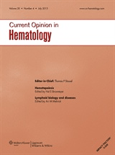
CURRENT OPINION IN HEMATOLOGY
Unveiling the latest trends in hematology for professionals.CURRENT OPINION IN HEMATOLOGY is a leading peer-reviewed journal published by Lippincott Williams & Wilkins, focusing on the latest advancements and insights in the field of hematology. With an impressive impact factor and ranked in the first quartile (Q1) of its category, this journal serves as a vital resource for researchers, clinicians, and students seeking to stay informed on contemporary issues and emerging trends in hematological research and treatment. Established in 1994, it showcases critical reviews, expert commentary, and systematic analyses across a broad spectrum of hematology topics, contributing significantly to clinical and experimental knowledge through its robust editorial standards. While offering traditional subscription access, CURRENT OPINION IN HEMATOLOGY remains committed to providing a platform that bridges the gap between fundamental research and clinical application, making it indispensable for professionals dedicated to advancing patient care and scientific understanding in hematology.
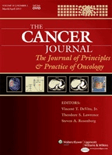
CANCER JOURNAL
Uncovering the Mysteries of Cancer for Better Care.CANCER JOURNAL is a leading peer-reviewed publication dedicated to the dissemination of innovative research in the fields of cancer research and oncology. Published by Lippincott Williams & Wilkins, this journal serves as an essential resource for researchers, clinicians, and students seeking to advance their understanding of cancer mechanisms, treatment strategies, and patient care. With an ISSN of 1528-9117 and an E-ISSN of 1540-336X, it boasts a respectable 2023 Q2 category ranking in both Cancer Research and Oncology, reflecting its impactful contributions to the scientific community. Although it currently does not offer open access, the journal's rigorous peer-review process ensures the publication of high-quality, relevant studies that stimulate further investigation and collaboration among professionals. Since its inception, the journal has evolved through several converged years, maintaining a steadfast commitment to addressing the complexities of cancer biology and treatment. At its core, CANCER JOURNAL aims to foster advancements in oncology, making it a vital platform for sharing pivotal findings that could transform cancer research and therapeutic practices.

Journal of Hematology
Exploring the Depths of Hematological ResearchThe Journal of Hematology, published by ELMER PRESS INC, serves as a pivotal platform for disseminating cutting-edge research in the field of hematology. With an ISSN of 1927-1212 and an E-ISSN of 1927-1220, this journal is committed to advancing scientific knowledge and clinical practice through high-quality peer-reviewed articles encompassing all aspects of blood disorders, from basic science to health policy implications. While the journal currently operates under a traditional access model, it nonetheless prioritizes the rapid publication of significant findings, ensuring that researchers, clinicians, and students have timely access to the latest advancements in hematological research. Positioned to bridge gaps in knowledge and foster collaboration among scholars worldwide, the Journal of Hematology is an essential resource for anyone invested in this vital area of medicine.
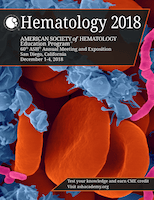
Hematology-American Society of Hematology Education Program
Fostering Excellence in Hematological ResearchHematology-American Society of Hematology Education Program is a premier peer-reviewed journal dedicated to advancing the field of hematology through comprehensive educational content. Published by the American Society of Hematology, this journal plays a crucial role in disseminating knowledge to researchers, clinicians, and students in hematology and related disciplines. With an impressive Q1 status in the field, it ranks among the top journals at the forefront of hematological research, as evidenced by its 60th percentile ranking in Scopus' Medicine - Hematology category. Although it does not offer open access, the journal provides invaluable insights and educational resources from leading experts, focusing on the latest advancements, treatment protocols, and evolving understanding of blood disorders. Covering a wide range of topics, from basic research to clinical applications, this journal is essential for anyone seeking to deepen their expertise and stay informed on the latest developments in hematology. For further engagement, readers can access insightful articles published since 2001, ensuring a rich repository of knowledge for ongoing research and clinical excellence.

Journal of Hematology & Oncology
Transforming Insights into Impactful TreatmentsJournal of Hematology & Oncology, published by BMC, is a leading open-access journal dedicated to the dynamic fields of hematology and oncology, with a continuous publication record since 2008. Based in the United Kingdom, this prestigious journal provides a platform for groundbreaking research, encompassing topics that span cancer research, hematological disorders, and molecular biology. With a remarkable Q1 ranking in multiple categories including Cancer Research, Hematology, Molecular Biology, and Oncology for 2023, it stands as a significant contributor to the scientific community. The journal's rigorous peer-review process ensures the dissemination of high-quality studies that drive advancements in these critical areas of medicine, boasting an impressive Scopus rank in the top echelons of its fields. As an open-access publication, it promotes widespread accessibility and sharing of knowledge, making it an indispensable resource for researchers, clinicians, and students striving to make advancements in understanding and treating hematological and oncological diseases.
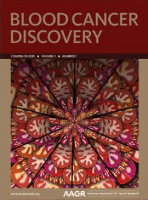
Blood Cancer Discovery
Empowering Scholars to Shape the Future of HematologyBlood Cancer Discovery is a premier academic journal published by the American Association for Cancer Research, dedicated to advancing the understanding of hematologic malignancies through cutting-edge research in the fields of oncology, biochemistry, and molecular biology. With an impressive impact factor and recognition as a Q1 journal across multiple disciplines, including cancer research and hematology, Blood Cancer Discovery serves as an essential platform for scholars and practitioners alike, facilitating impactful discourse and dissemination of pioneering findings. This open-access journal, established within the vibrant academic landscape of the United States, aims to bridge gaps in research and foster collaborations to ultimately enhance patient outcomes. Its Scopus rankings demonstrate its vital role in the critical advancement of cancer research and therapeutic development. By inviting contributions from a diverse range of disciplines, Blood Cancer Discovery is poised to drive innovation and inspire future advancements in understanding blood cancers.
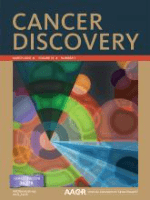
Cancer Discovery
Catalyzing Collaboration for a Cancer-Free FutureCancer Discovery, published by the American Association for Cancer Research, stands as a vital resource in the oncological research community, renowned for its commitment to disseminating groundbreaking studies and innovative findings in cancer biology, prevention, diagnostics, and treatment. With a significant impact factor reflecting its esteemed position, this journal facilitates open discussions and collaborations, striving to bridge the gap between experimental and clinical research. The journal, which has been active since 2011, is classified as a Q1 publication in 2023, underscoring its influence and authority in the realm of Oncology. By providing a platform for rigorous peer-reviewed articles, Cancer Discovery aims to advance our understanding of cancer and enhance therapeutic strategies, making it an indispensable tool for researchers, professionals, and students eager to stay at the forefront of cancer research.

Hematologie
Fostering Knowledge in Blood HealthHematologie is a highly regarded journal in the field of hematology, published by JOHN LIBBEY EUROTEXT LTD. With an ISSN of 1264-7527 and an E-ISSN of 1950-6368, this journal has established itself as a vital resource for researchers, clinicians, and students dedicated to advancing the understanding of blood disorders and treatments. Although the journal's coverage in Scopus was discontinued in 2018, it has continually provided invaluable insights and research findings. The journal aims to foster knowledge sharing and discussion in hematology, exploring innovative methodologies and emerging trends in the field. With a commitment to quality research, Hematologie remains an essential platform for disseminating critical findings that can drive clinical practice and influence future studies in hematological sciences.
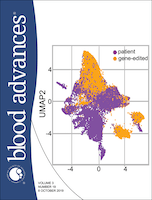
Blood Advances
Pioneering Discoveries in Blood DisordersBlood Advances is a premier, peer-reviewed journal published by Elsevier, dedicated to the field of hematology. With an impressive impact factor and classified within the Q1 category of hematology for 2023, it ranks as the 16th out of 137 journals in the Scopus Medicine Hematology category, placing it in the top 88th percentile globally. This influential journal, which has been disseminating invaluable research since its inception in 2017, focuses on advancing knowledge and innovation in blood science, including clinical and laboratory aspects of hematology. Although it offers limited open access features, its comprehensive scope encompasses various topics relevant to both researchers and practitioners. Located in the United States and managed from Amsterdam, Blood Advances provides a vital platform for the dissemination of groundbreaking research, making significant contributions to the understanding and treatment of blood disorders. Researchers, professionals, and students alike will find this journal an essential resource for keeping abreast of the latest developments and advancements in hematology.
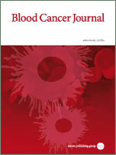
Blood Cancer Journal
Fostering collaboration in the fight against blood cancer.Blood Cancer Journal, published by SPRINGERNATURE, is a leading open-access journal that has been at the forefront of hematology and oncology research since its inception in 2011. With an impressive impact factor and a commitment to disseminating high-quality research, it holds a prestigious Q1 ranking in both hematology and oncology categories as of 2023. The journal is dedicated to publishing innovative studies, comprehensive reviews, and insightful commentaries that advance our understanding of blood cancers, making it an essential resource for researchers, healthcare professionals, and students in the field. Its open-access model ensures that groundbreaking research is accessible to a global audience, promoting collaborative efforts to enhance treatment methodologies and patient outcomes. With a strong reputation illustrated by its Scopus rankings—8th in hematology and 30th in oncology—Blood Cancer Journal exemplifies excellence and leadership in the ever-evolving landscape of cancer research.